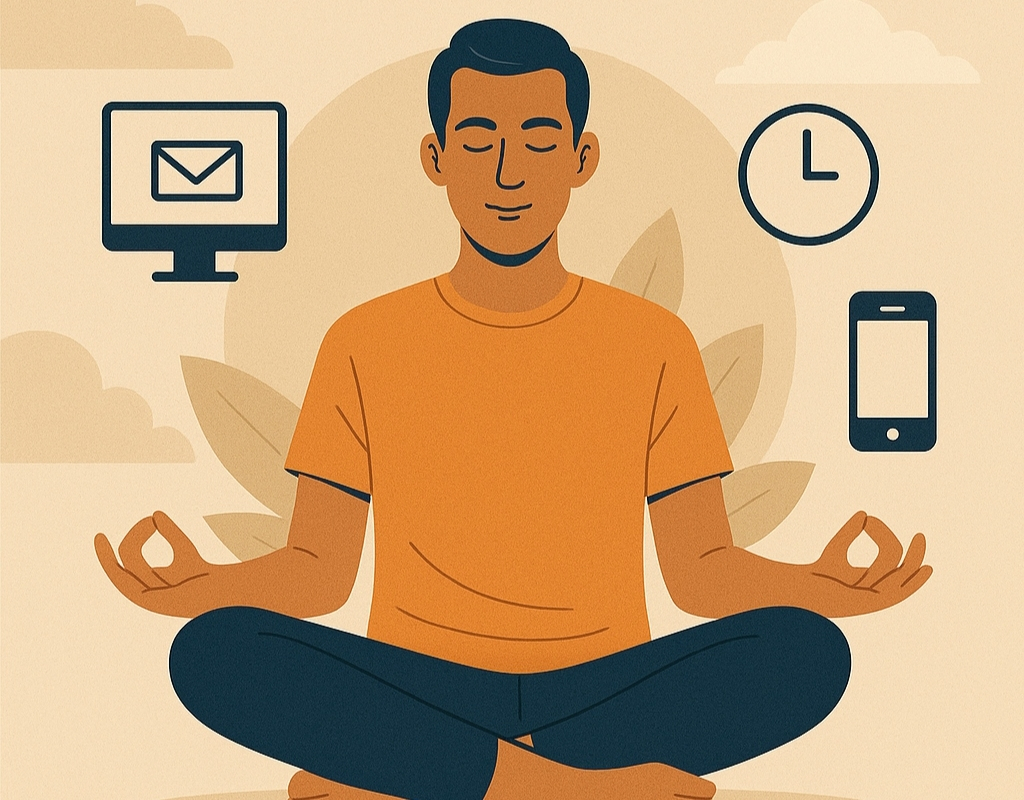THE SILENT REVOLUTION
HOW MEDITATION IS TRANSFORMING MODERN LIVES

In a world marked by constant noise, unending digital demands, and ever-rising stress levels, a quiet revolution is taking place one breath at a time. Meditation, once considered a mystical Eastern practice, has steadily moved into the mainstream, offering people from all walks of life a powerful tool for mental clarity, emotional balance, and overall well-being.
No longer confined to monks in remote monasteries or yoga retreats in exotic locales, meditation today is practiced by CEOs in boardrooms, students preparing for exams, and athletes seeking peak performance. Its rising popularity is supported by a growing body of scientific research that confirms what ancient traditions have long known: taking time to be still can profoundly impact both the mind and the body.
At its core, meditation is the practice of focused attention often on the breath, a mantra, or bodily sensations while gently bringing the mind back whenever it wanders. This simple act of presence has been shown to reduce anxiety, lower blood pressure, and improve sleep. Research from leading institutions like Harvard and Stanford has even linked regular meditation to structural changes in the brain, including increased gray matter in regions tied to learning and memory, and reduced activity in areas associated with stress.
For many, meditation provides a much-needed counterbalance to the fast-paced lifestyle of modern society. “We live in a culture that celebrates multitasking and busyness,” says Dr. Priya Mehra, a clinical psychologist and mindfulness coach. “Meditation invites us to slow down, observe, and reconnect with ourselves.”
Interestingly, technology once seen as a barrier to mindfulness is now helping to spread it. Mobile apps like Headspace, Calm, and Insight Timer have made guided meditation accessible to millions. With sessions ranging from just one minute to an hour, these tools are bridging the gap for both beginners and seasoned practitioners.
Yet beyond techniques and tools, the essence of meditation lies in cultivating awareness and acceptance learning to sit with one’s thoughts without judgment. Over time, this practice fosters compassion, emotional resilience, and a deeper understanding of both oneself and others.
Consistency, however, remains a common challenge. “People often give up too soon, thinking they’re not doing it right because their mind keeps wandering,” explains Mehra. “But that’s part of the practice. The magic lies in returning to the present moment, again and again.”
As mental health concerns rise worldwide, meditation is emerging not just as a personal wellness tool, but as a public health ally. Schools, prisons, and hospitals are increasingly integrating mindfulness programs, reporting reduced stress and greater focus among participants.
In an age where attention is fragmented and stress is constant, meditation offers a rare refuge a chance to pause, breathe, and simply be. It may not be a cure-all, but for many, it represents an essential step toward a more centered, conscious, and compassionate life.

Hands United for Lifelong Aid and
Human
Upliftment Lever Foundation
Since 2012
ALL CONTACTS
-
Registered Office:
1/5 Parel Shivshandesh CHSL., Kasturba Gandhi Nagar, LR Papan Marg, Worli, Mumbai 400018. -
Branches:
Worli, Charni Road, Kalyan, Pune - +91-8082376061 , +91-8369001611
- hulahulgrp@gmail.com
SUPPORT US
If you wish to contribute to our mission, you can make a donation via bank transfer to the following account:
Bank Details
Name: HULAHUL Foundation
Bank: IDBI Bank
Account Number: 0026104000273299
IFSC Code: IBKL0000026
Branch: Prabhadevi


Leave a Reply